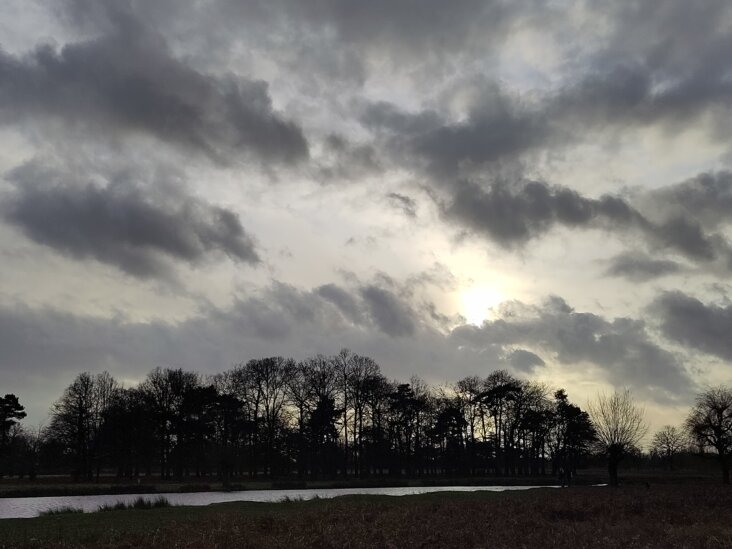Stormy Socials – exploring ethical social media for museums

In February we opened up an online conversation – Stormy Socials – to discuss the rampant information disorder sweeping the social media eco-system. In collaboration with the Museum of Homelessness we invited museum practitioners to join us to explore ethical use of social media.
We were keen to explore how we can speak honestly and authentically with wider and online communities in this moment. Our social media channels are changing rapidly: media platforms are increasingly weaponised; their billionaire owners are seeking to loosen controls and promote destabilising narratives. How do we find a clear platform and path to speak with courage and clarity? Our aim was to share issues and concerns with peers, hear good practice from others in museums and other sectors and explore routes through this challenging time in collective communication.
We were joined by participants from across the museum sector including Happy Museum, NMDC, Museum of Homelessness, MERL, GEM, Central St Martins Museum, National Science and Media Museum, National Gallery, Cultural Associates Oxford, Quentin Blake Centre for Illustration and Derby Museums
First we heard from Matt and JessTurtle at MoH. They identified a vital need to address ‘information disorder’ as part of wider democratic destabilisation – and explained how, as a campaigning museum they had identified recurring tropes/ untruths in relation to homelessness and were active in seeking to challenge these online. Alongside this they are actively promoting the intersectionality of their community, sharing joy and using platforms for campaigning and collaboration. Their question to the session was – How do we support people to work in an environment where there is an increasing amount of conflict?
Claire Madge from NMDC shared the challenges of managing 13 different social media accounts – and how the diversity of platforms required a different ‘tone of voice’ for each presence/ account from NMDC where the focus was on information sharing, advocacy; also seeking to offer model for partners/ members – to Autism in Museums and Tincture of Museum where the tone was more passionate and personal. They spoke of a need for clarity of values, mission, ethos. Their question was – how do you manage the nuances between different platforms – where is your audience?
Hilary from Happy Museum questioned what are the key messages we, as a cultural sector, would like to put out to counter information disorder? How could we use our cultural power to weaponise for good in the face of those weaponizing for bad?
Joe Vaughan from MERL explored how we balance meeting people where they are vs upholding our values and ethics? What are the values of the platforms – how do they align? How to negotiate if our mission is to share collections with audiences? MERL has/ had 160k followers on X – which poses a major question of whether/ how to leave – he observed it is currently ‘Existential’ for many museums to leave X.
The subject of AI came up – with concern about scraping of online data by AI and the implications for distortion and misuse of museum information and an undermining of trust. GEM are planning a session to discuss some of the ethics and issues around AI and use in museum learning, and looking at other training going forward – will be June sometime so keep an eye for details.
We had a lively and valuable discussion – meanwhile nearly 800 people had viewed the session Eventbrite so the issue of social media use is clearly both challenging and timely – and likely to get more so rather than less!
Towards the end of the session we discussed what next. What does the sector needs in order to manage its presence on social media – how can it be a force for good in the face of information disorder and how can we support those handling museum social media. Ideas included the creation of an informal coalition or network and the need for capacity-building: relational, nuanced, contextual. We identified a need to hold the distress of practitioners in holding some of these channels of communication.
We are opening up discussions with some potential partners – if you are interested in joining future conversations please let us know at happymuseumproject@gmail.com
In the meantime here are some RESOURCES shared during the session.
Work on collective framing/narratives which Happy Museum has done with Common Cause
A recent Ipsos poll on most trusted professions – museum curators are 6th on the list: 83% of people “generally trust them to tell the truth” https://www.ipsos.com/en-uk/ipsos-veracity-index-2024
NEMO – Helping museums organise community forums on climate change – (not social media specific) but interesting on thinking about the role of museums for building empathy and engagement. https://www.ne-mo.org/news-events/article/new-nemo-guide-helps-museums-organise-community-forums-on-climate-action/ (Feb 2025)
A TED talk around how not to contribute to polarization via social media

